Indianz.Com > News > Chuck Hoskin: Cherokee Nation works to protect Native voting rights
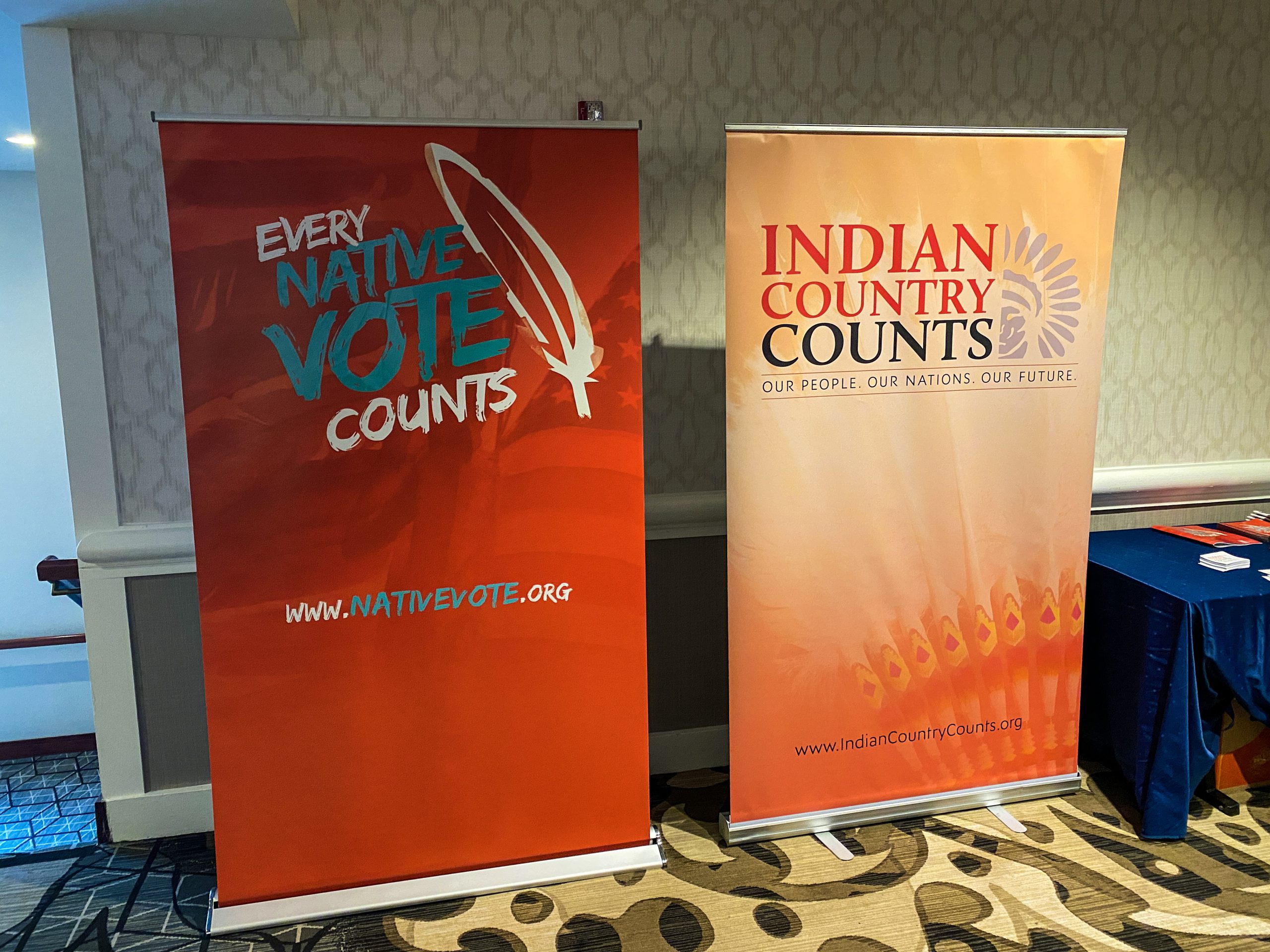
Native American Voting Rights Act needed to protect our sacred right to vote
Monday, September 27, 2021
Cherokee Nation
The cornerstone of our democracy is the right to vote. However, for most of our country’s history, Native Americans were denied that right.
The Indian Citizenship Act of 1924 finally granted citizenship to all Native Americans born in the U.S., but even after that law, states could restrict Native voting rights. It was not until 1962 that Utah became the final state to allow Natives the right to vote. For much of the 20th century, until federal Indian law reforms of the 1970s, Cherokees were not allowed to elect leaders of our own tribe.
To this day, barriers prevent Indian Country from fully making our voices heard and our votes count. Many Native Americans live in remote, rural locations with poor road conditions and no easy way to reach distantly placed polling locations. Many tribal lands have limited access to post offices and nontraditional mailing addresses, which makes it extremely difficult to register to vote or mail in a ballot. In some cases, the lack of Native language translation during the voting process prevents our Native language-speaking citizens from voting and further endangers our languages.
Fortunately, new legislation recently introduced in Congress can fix many of these issues. The Native American Voting Rights Act (NAVRA), co-sponsored in the House by Rep. Tom Cole (R-Oklahoma) and Rep. Sharice Davids (D-Kansas), would go a long way to ensuring equal voting access throughout Indian Country. [H.R.5008 | S.2702]
Native American Voting Rights Act Social Media Toolkit: vote.narf.org
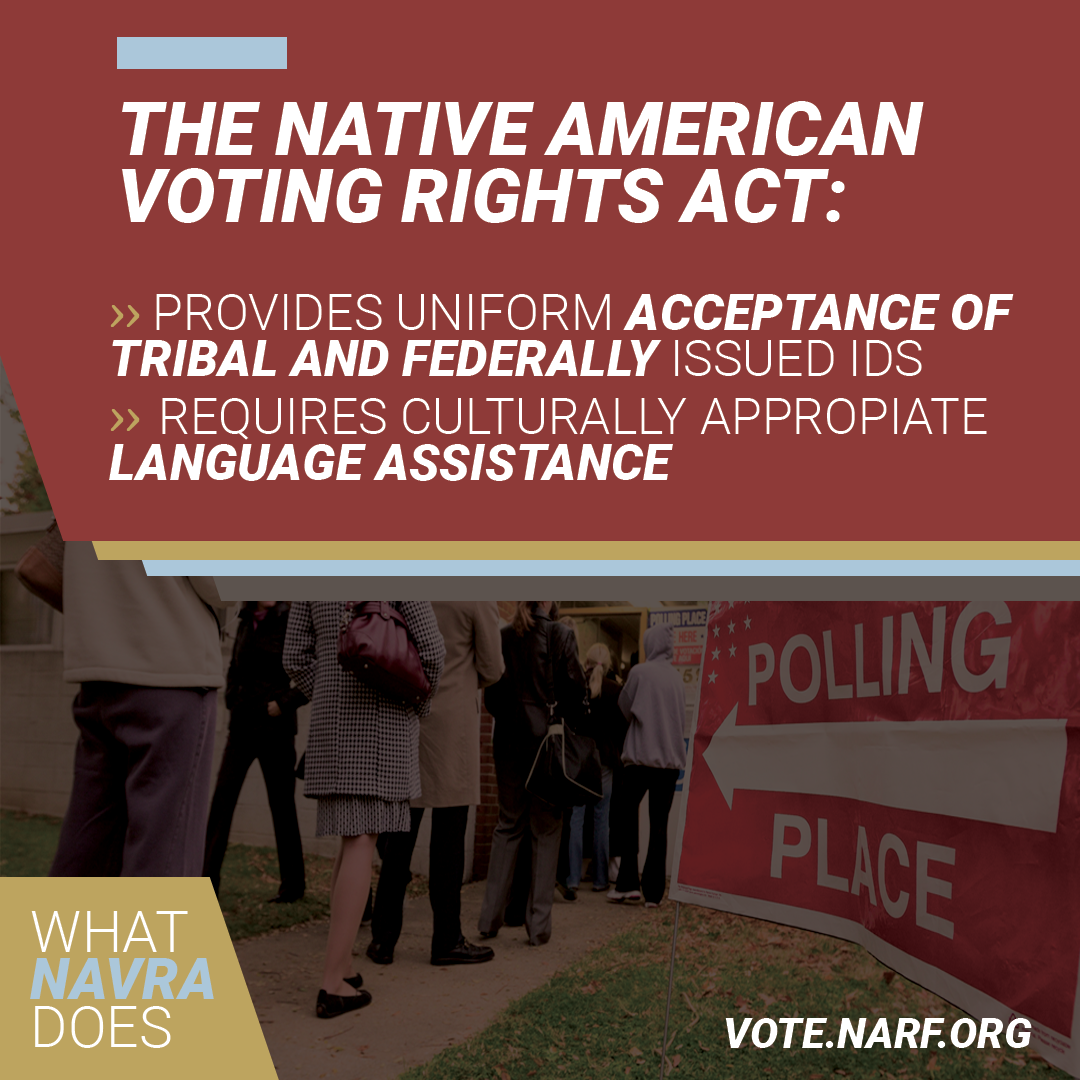
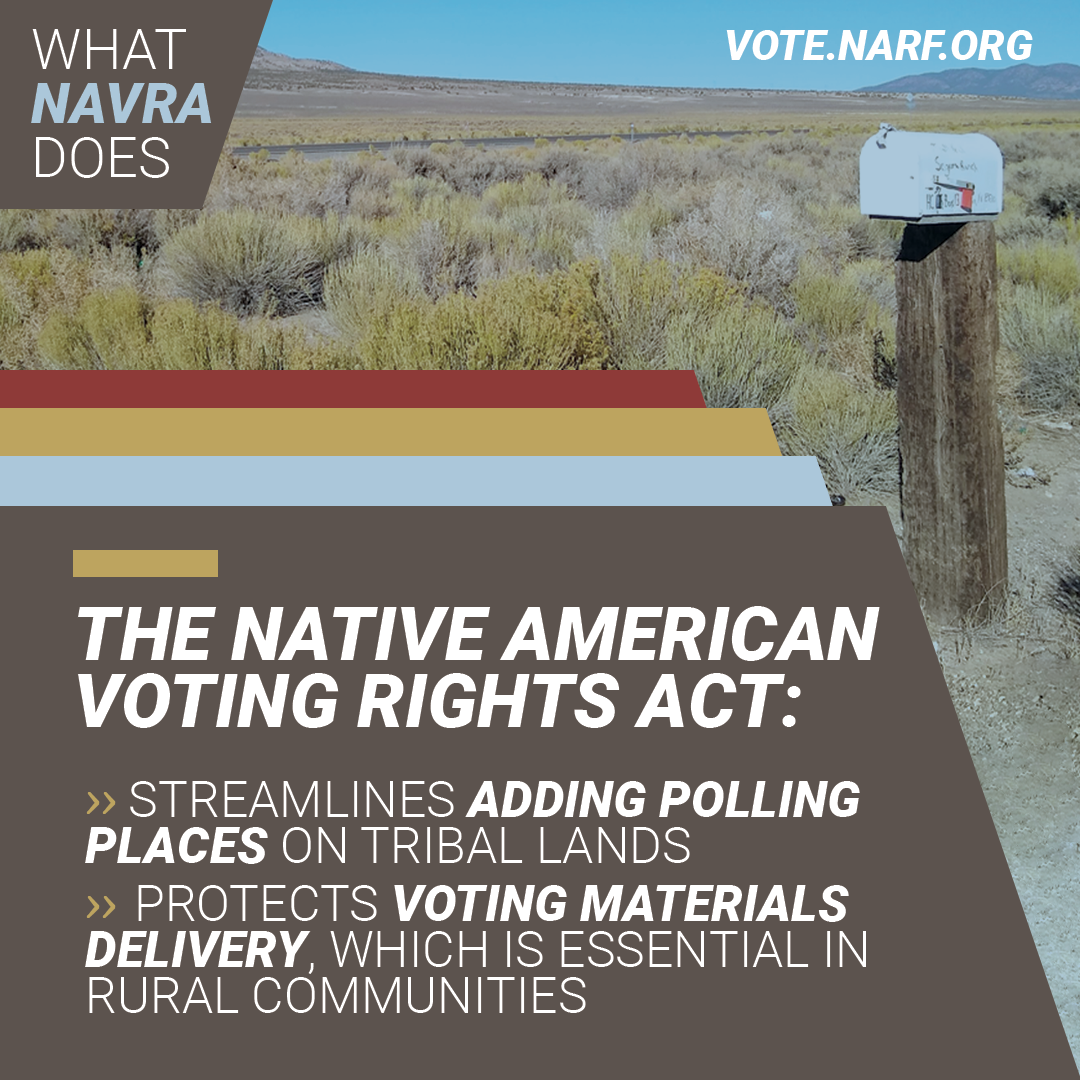
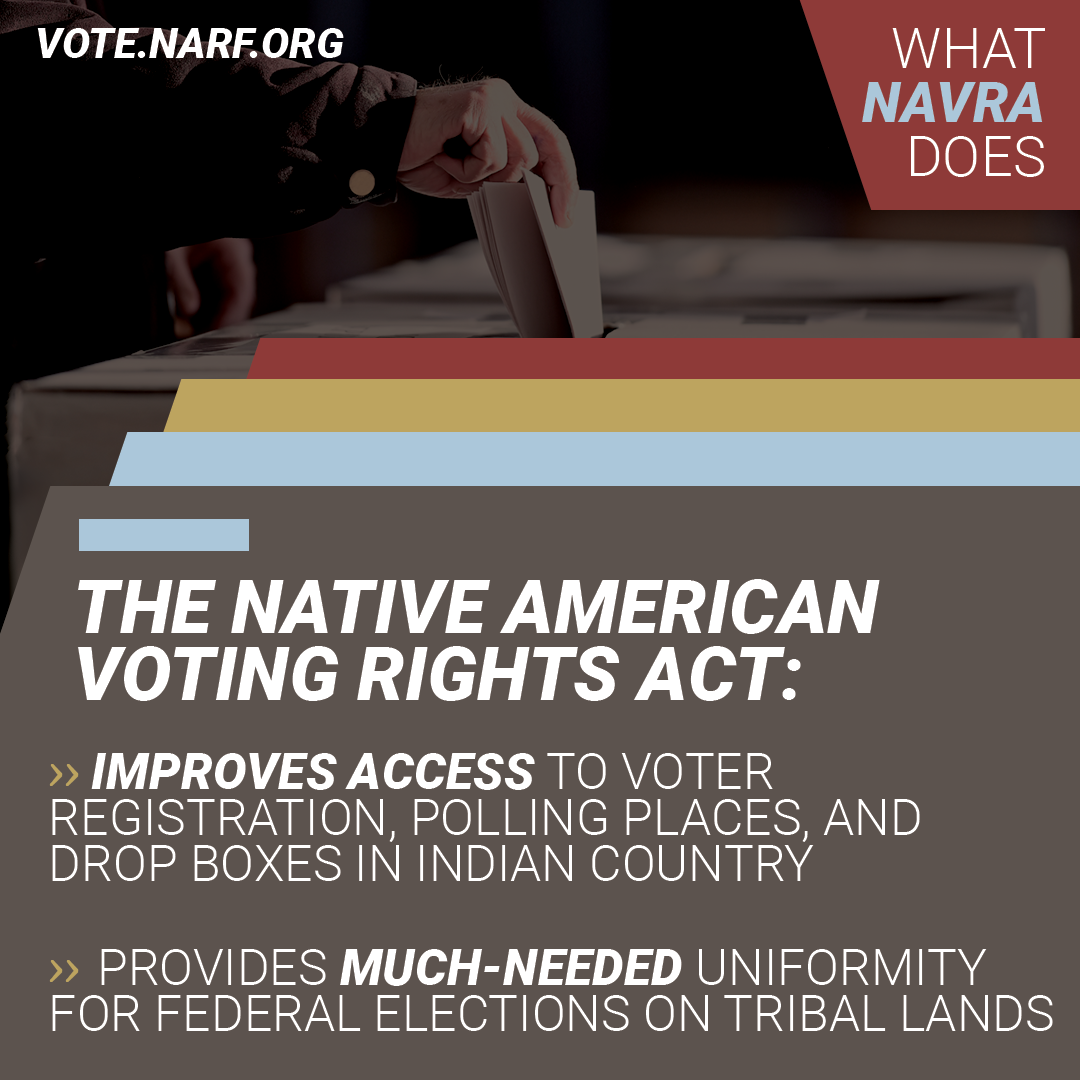
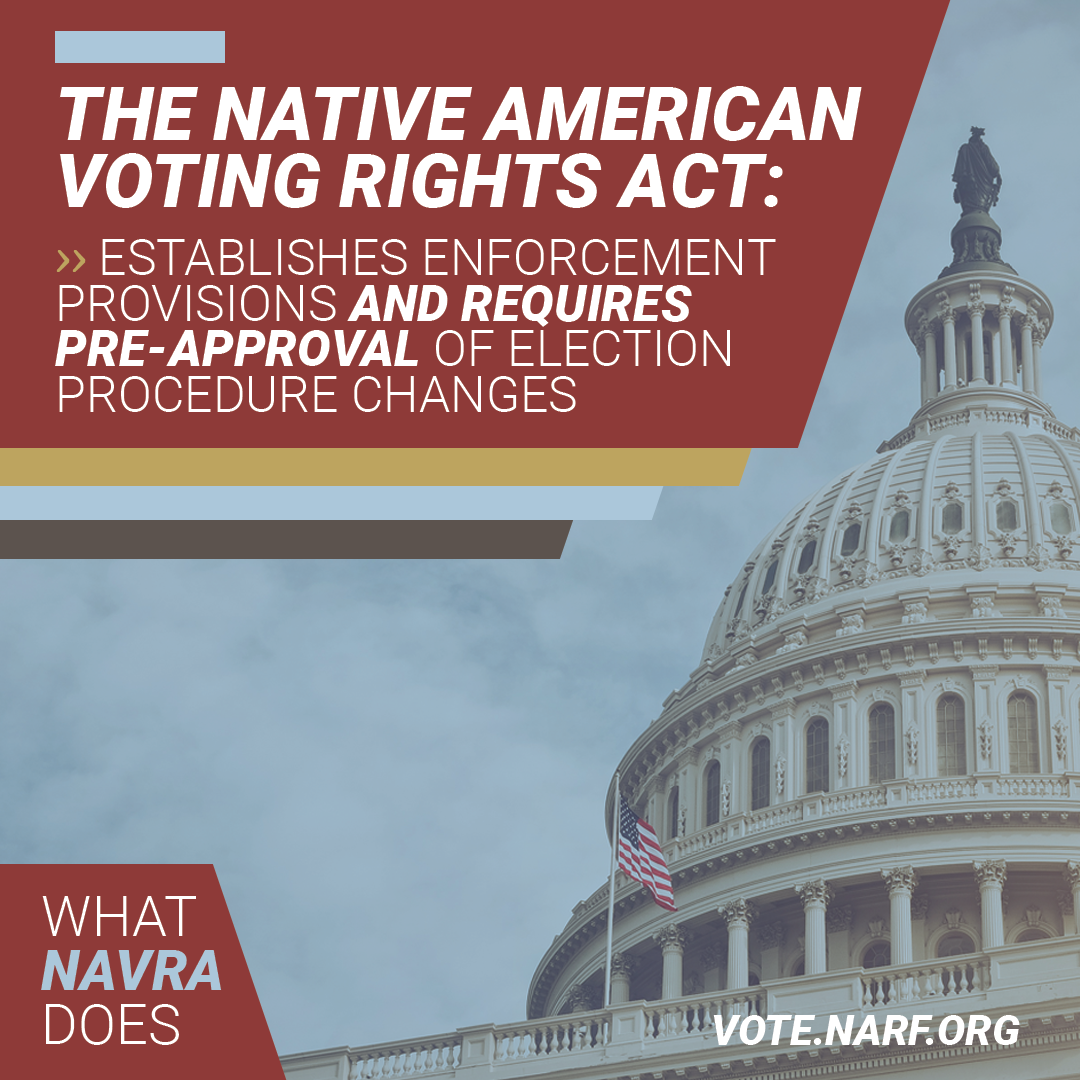
Chuck Hoskin Jr.
is the 18th elected Principal Chief of the Cherokee Nation, the largest Indian
tribe in the United States. He is only the second elected Principal Chief of the
Cherokee Nation from Vinita, the first being Thomas Buffington, who served from
1899-1903. Prior to being elected Principal Chief, Hoskin served as the tribe’s
Secretary of State. He also formerly served as a member of the Council of the
Cherokee Nation, representing District 11 for six years.
Search
Filed Under
Tags
More Headlines
Press Release: National Museum of the American Indian hosts Native art market
AUDIO: Sea Lion Predation in the Pacific Northwest
Native America Calling: Tribal colleges see an uncertain federal funding road ahead
Native America Calling: Short films taking on big stories
Native America Calling: Advocates push back against new obstacles to Missing and Murdered Indigenous Relatives momentum
Native America Calling: For all its promise, AI is a potential threat to culture
NAFOA: 5 Things You Need to Know this Week (November 24, 2025)
Chuck Hoskin: Cherokee Nation invests in rural transportation
Native America Calling: Native candidates make strides in local elections
National Congress of American Indians returns incumbents and welcomes newcomers to leadership
National Congress of American Indians chooses leadership at big convention
‘Not voting is still a vote’: Native turnout drops amid changes in political winds
Native America Calling: Indigenous voices speak up, but have little clout at COP30
‘It’s bull****’: Indian Country confronts challenges at largest inter-tribal conference
Native America Calling: The constant burden on tribal hunters to justify their treaty rights
More Headlines
AUDIO: Sea Lion Predation in the Pacific Northwest
Native America Calling: Tribal colleges see an uncertain federal funding road ahead
Native America Calling: Short films taking on big stories
Native America Calling: Advocates push back against new obstacles to Missing and Murdered Indigenous Relatives momentum
Native America Calling: For all its promise, AI is a potential threat to culture
NAFOA: 5 Things You Need to Know this Week (November 24, 2025)
Chuck Hoskin: Cherokee Nation invests in rural transportation
Native America Calling: Native candidates make strides in local elections
National Congress of American Indians returns incumbents and welcomes newcomers to leadership
National Congress of American Indians chooses leadership at big convention
‘Not voting is still a vote’: Native turnout drops amid changes in political winds
Native America Calling: Indigenous voices speak up, but have little clout at COP30
‘It’s bull****’: Indian Country confronts challenges at largest inter-tribal conference
Native America Calling: The constant burden on tribal hunters to justify their treaty rights
More Headlines